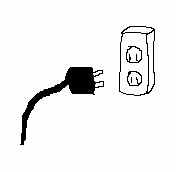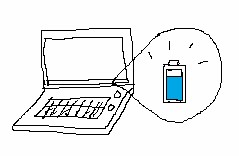present=now, present=a gift, now=a gift

Everyday is a gift as you are aware of this secret. If you try to see the present in detail, you can recognize a piece of moments. Every moment is a part of whole present. Every moments include your actions, reactions, thoughts, emotions, feelings, perception and consciousness. Sometimes you can cover them but sometimes you can be overwhelmed by them. If you are not aware of every moments, you are just absorbed into the world that you don’t creat and feel hard to handle with it. That’s why Buddha addressed how beneficial you concentrate on mindfulness. The basic teaching of Buddha is “Four noble truths and Eightfold path“.
The Four Noble Truths
- Life means suffering.
- The origin of suffering is attachment.
- The cessation of suffering is attainable.
- The path to the cessation of suffering.
The Eightfold path
- Right understanding
- Right thought
- Right speech
- Right action
- Right livelihood
- Right Effort
- Right mindfulness
- Right concentration
Eightfold path is an essence about how to live your life. 8 elements all are important and valuable. Especially Zen Buddhism insists on mindfulness more than others, though. Because I guess zen state is very close to mindfulness.
The word Zen is from the Japanese pronunciation of the Middle Chinese word 禪 Dzyen (Modern Mandarin: Chán), which in turn is derived from the Sanskrit word dhyāna, which can be approximately translated as “absorption” or “meditative state” (From Wikipedia)
What is Mindfulness?
Mindfulness has 3 sects of words: mind, ful, ness
The concept of mind is understood in many different ways by many different traditions, ranging from panpsychism and animism to traditional and organized religious views, as well as secular and materialist philosophies. Most agree that minds are constituted by conscious experience and intelligent thought. Common attributes of mind include perception, reason, imagination, memory, emotion, attention, and a capacity for communication. A rich set of unconscious processes are also included in many modern characterizations of mind. (From Wikipedia)
- Used to form adjectives from nouns. An adjective derived by this suffix implies a thorough and certain possession of the quality of that noun, not a metaphorical fullness with it by degree or quantity. What is beautiful may be full of beauties, but is first fully beautiful; one who is wakeful is fully awake, not frequently waking; what is changeful is uncertain, not transformed; what is harmful may do a single and a mild injury.
- Used to form nouns from nouns meaning “as much as can be held by what is denoted by the noun” bowlful(From wiktionary)
- Appended to adjectives to form nouns meaning “the state of (the adjective)”, “the quality of (the adjective)”, or “the measure of (the adjective)”. calmness ← calm, darkness ← dark , kindness ← kind , oneness ← one
- Appended to words of other parts of speech to form nouns (often nonce words or terms in philosophy) meaning the state/quality/measure of the idea represented by these words. thatness ← that, treeness ← tree (From wiktionary)
So… mindfulness means “the state of the certain possession of quality of mind“. To be short, it means possession of mind. You are not distracted or wandering or losing way when you live life moments.
What is mindful life?
Let’s imagine you are washing dishes. How is mindful washing dishes? You wash only dishes. Your mind is filled with washing dishes. While you are washing dishes, you could think of your girl/boyfriends or food that you want to eat later or money that you worry about or something else. Then the dishes must not be cleaned well. You can’t be a master of washing dishes. Mindful life is that you make yourself master of moments. Then you become a master of life. Mindful moments represent the state of enlightenment. You are free from mind with mindful moments. At the mindful moments, there is no mind(attachment) any more. That’s empty and nothing. Only actions. Still reality here but not suffering.
What are Mindful life activities?
Ok, then, any actions with mindfulness gets you to enlightenment? For example, killing animals or hurting people, too? This might be very complicated question. I could say “yes” at the higher conscious level but I can’t. Actually Nature is beyond morality or Ethics that human kinds created. There is no perfect good or evil. For so many thousands years, human race had been pondering that. Still only questions. Modern neuroscientists, however, finds human brains are evolved as they do good actions that lead them to survive. They say bad actions make them lose oppotunities to survive naturally and that’s why human race pursue morality or good behaviors at least. I think morality or Ethics might be one of methods to protect ourselves. Buddha taught “RIGHT mindfulness” and that means you should contemplate if your mindfulness is right or not. So, I want to accept only spiritual mindful life trusting on some scientific research.
I’d like to share mindful life activities or habits or behaviors that have deep insight, wisdom and compassion to help people, animals, Nature and this planet. When you wash your face and you are mindful with washing your face, you can save water and that’s one of environmental movement. Every movements must start not on the street but at home.
I admit I am not perfect, either. Sometimes I realize my mindfulless(?) behaviors or activities. I reflect on myself and correct them step by step. The most important thing is that you are awake. If you are awake, you will have chances to break bad habits or behaviors and build a new paradigm of mind.









